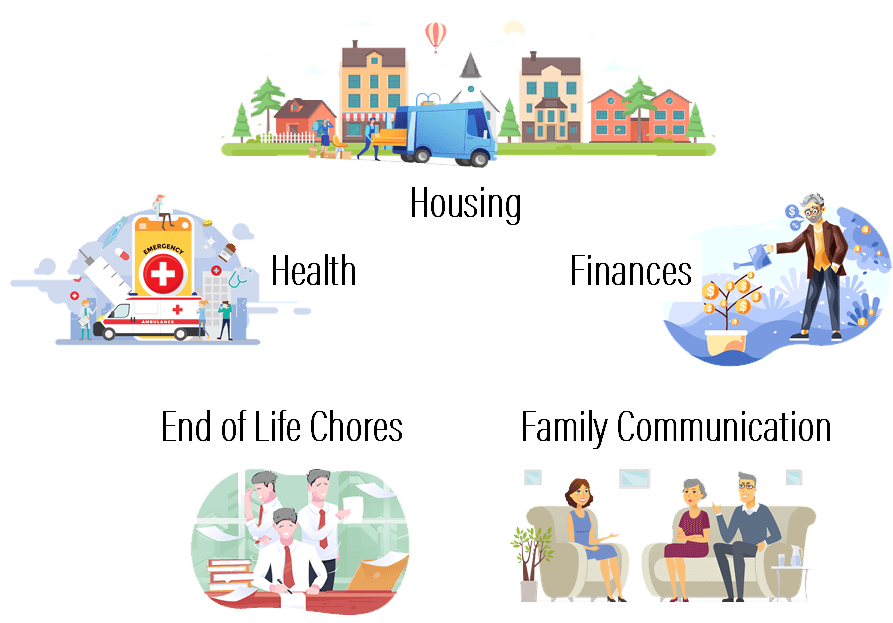Dementia
Click here to see what's on this page.
Dementia is the umbrella disease category covering declinations in memory, personality, and reasoning that impair everyday activities. Thus, diseases associated with these characteristics are classified under dementia.

Types of Dementia
Alzheimer’s Disease
Alzheimer’s, for example, is the most common form of Dementia. It’s characterized by brain cell death. Also, see our page on Alzheimer’s here.
Vascular Dementia
Vascular dementia is caused when blood does not get to the brain. It’s often caused or related to atherosclerotic disease or a stroke.
Lewy Body
This disease is also caused by proteins that deposit in nerve cells. The build-up also interrupts how the brain uses chemical messaging. Consequently, this can cause memory loss and disorientation.
Parkinson Disease
Parkinson’s disease is a progressive neurological disorder. In addition, it is commonly recognized as tremors in sufferers. As Parkinson’s disease advances, it is often associated with the development of dementia.
Frontaltemporaral
Frontaltemporaral encompasses a variety of dementia diagnoses that share damage in the front and side parts of the brain.
Creutzfeldt-Jakob Disease
A rare degenerative brain disease. The brain degeneration causes dementia.
Wernicke-Korsakoff Syndrome
This is also a rare form of dementia. It is caused by bleeding in the lower section of the brain. Furthermore, the Wernicke portion of the disease is associated with double vision and declination in coordination. As the brain becomes increasingly compromised, memory problems also emerge, and these are associated with the Korsakoff part of the disease.
Mixed Dementia
Refers to the diagnosis of multiple forms of dementia. For example, combinations of the diseases listed above.
Normal Pressure Hydrocephalus (NPH)
NPH is a disease where there is excess fluid in the brain’s ventricles. The excess fluid causes an imbalance in the brain. This can also damage the brain and lead to dementia symptoms.
Huntington’s Disease
Huntington’s disease is a genetic condition that the breakdown of brain nerve cells. This also causes dementia and impairs movement.
Signs And Symptoms Of Dementia
Dementia of all types share declinations in one or more of the following areas:
Early Signs
For example, early signs include:
Health Manifestations
The different diseases associated with dementia are likely to manifest in one or more of the following areas.
A Little History
CarePlanIt likes history. Often, the history of a situation or disease can shed light on how culture has historically classified or managed the situation. The word dementia comes from the Latin demens and dement which means “out of one’s mind.” Dementia praecox, for example, is an early term for dementia means “early insanity.”
Dementia, especially Alzheimer’s, is the deterioration of the brain. The brain is literally breaking down and dying. Almost all of us, if we live long enough, will suffer from some form of dementia.
So it makes sense to have some idea of how we’d want to be treated with dementia, and how we might expect to treat others.
A Useful Thought Experiment
Thought experiments can help us learn about difficult issues. For example, how would you want to answer the question below?
Here’s the thought experiment.
At some point in the future, for a period of two to ten years before you die, you’ll have Dementia. You’ll lose the ability care for yourself. This means you’ll need someone else to make your meals, manage your medications, pay your bills and manage your medical needs. You’ll also likely need help dressing, grooming, and using the restroom.
Signs of Dementia
CarePlanIt’s Approach To Dementia
CarePlanIt classifies every issue into one of five key areas: health, housing, finances, end-of-life chores & family communication. Once done, the CarePlanIt framework allows you to create an optimized process of addressing the challenge. You minimize your family’s time and costs while maximizing your chance at reaching an ideal solution. Although all five categories work together, it’s important to make an initial categorization.

Dementia is a “Health” issue. The disease is horrifying and frightening for the patient, family, and caregivers. But CarePlanIt can help you better understand the impact of Dementia on your life.
We can also help you navigate issues relating to the need for assisted living or nursing care. See our Health Section. Generally, for Health-related issues, CarePlanIt helps you optimize your finances, identify how your disease impacts your needs, and optimize your family’s participation.
In short, someone with Dementia is likely to require continuous supervision. For example, this can be provided by:
> An individual paying attention to their actions.
> An institutional type environment that provides supervision (nursing home or a Dementia unit in an assisted living facility)
Depending on your area, a private in-home caregiver can run between $10.00 and $25.00 an hour. If you look at help for $10 an hour, for 8 hours a week, five days a week, for example, you’d spend $21,000 a year. Further, at $25 an hour, for 16 hours a day, seven days a week, you’d spend $125,000 a year.
Quick Ideas
Managing the costs of supervising a Dementia patient is often the family’s major challenge. Therefore, identifying options can lessen the burden on those involved. For example:
What Families Do
Religious-Based Options
Daycare Options
Other CarePlanIt Sections To Review
In addition, for detailed techniques on how to address this disease within your family, review our Health, Housing, and Family Communication Sections.
Great References for Dementia
Center for Disease Control – click here
The Mayo Clinic also offers a good reference – click here
The Alzheimer’s Foundation is also a good resource – click here